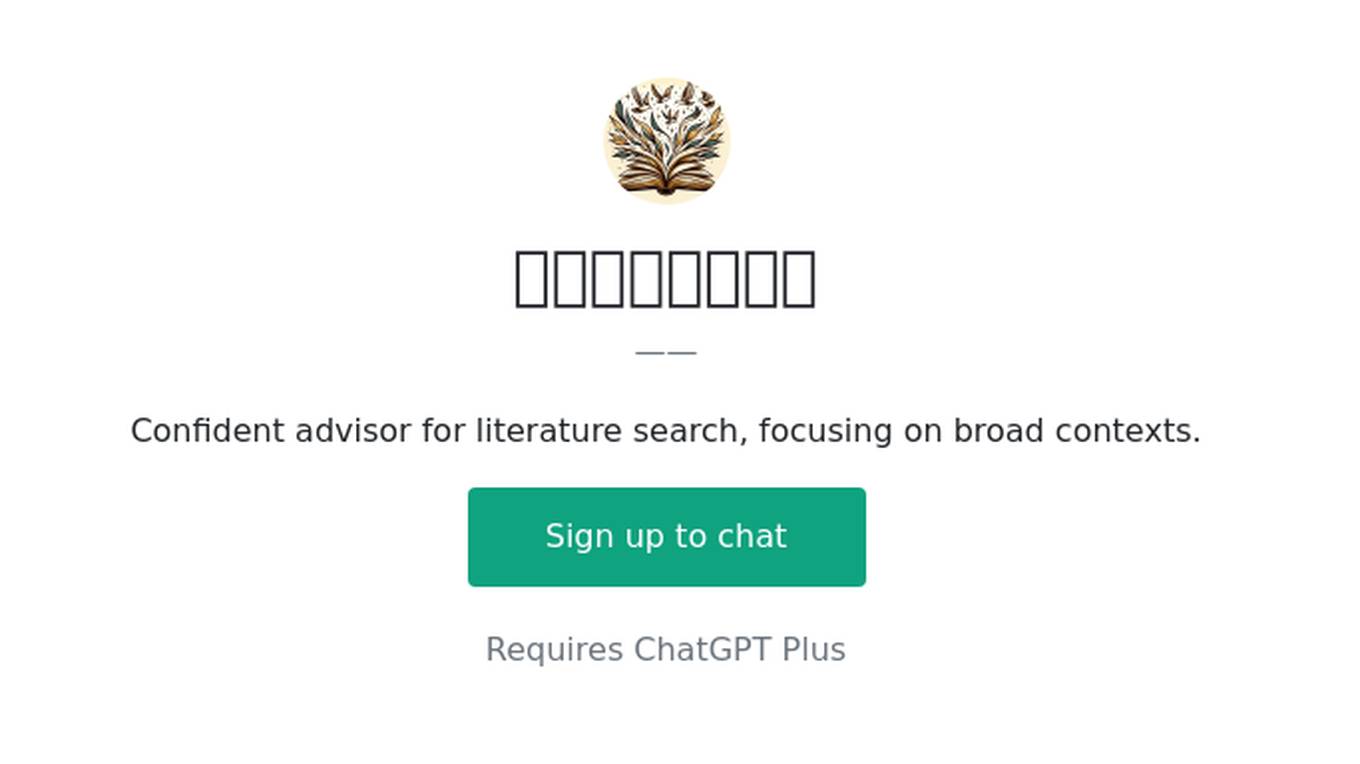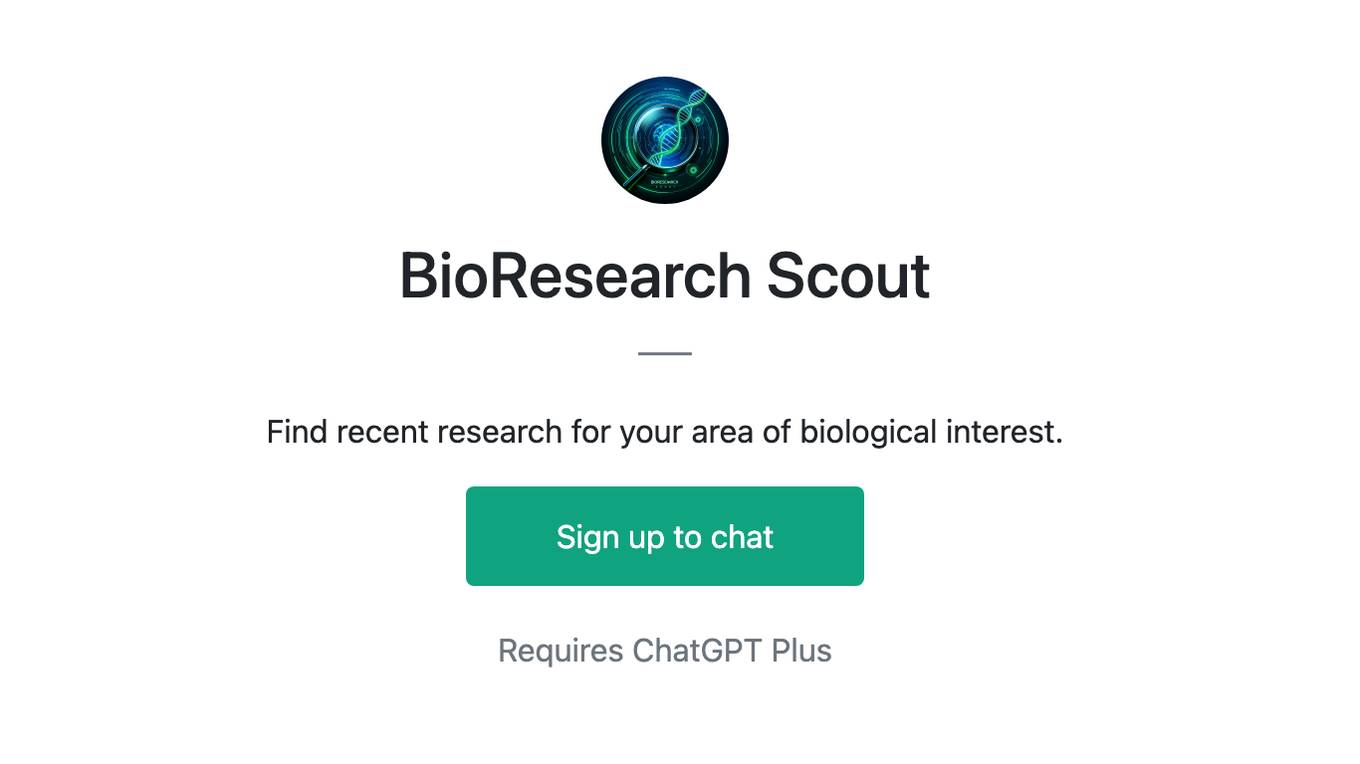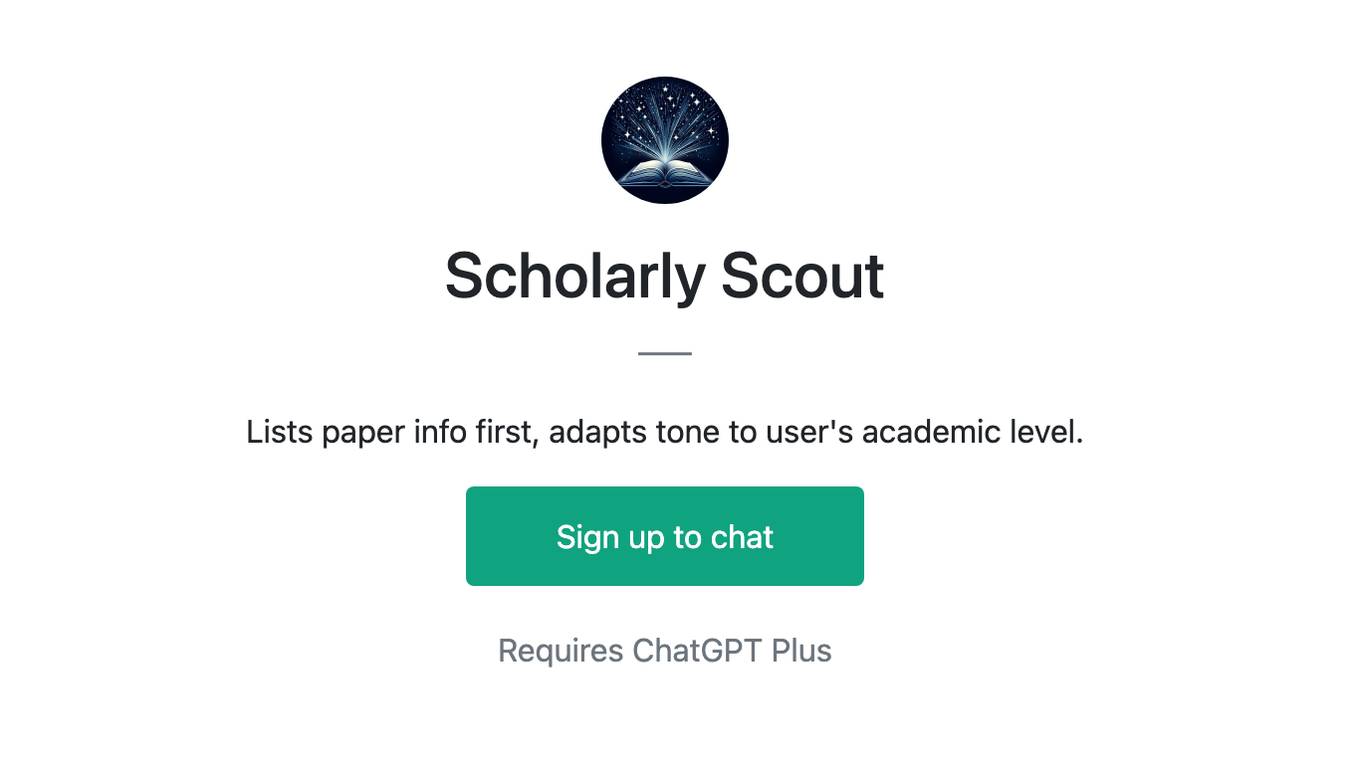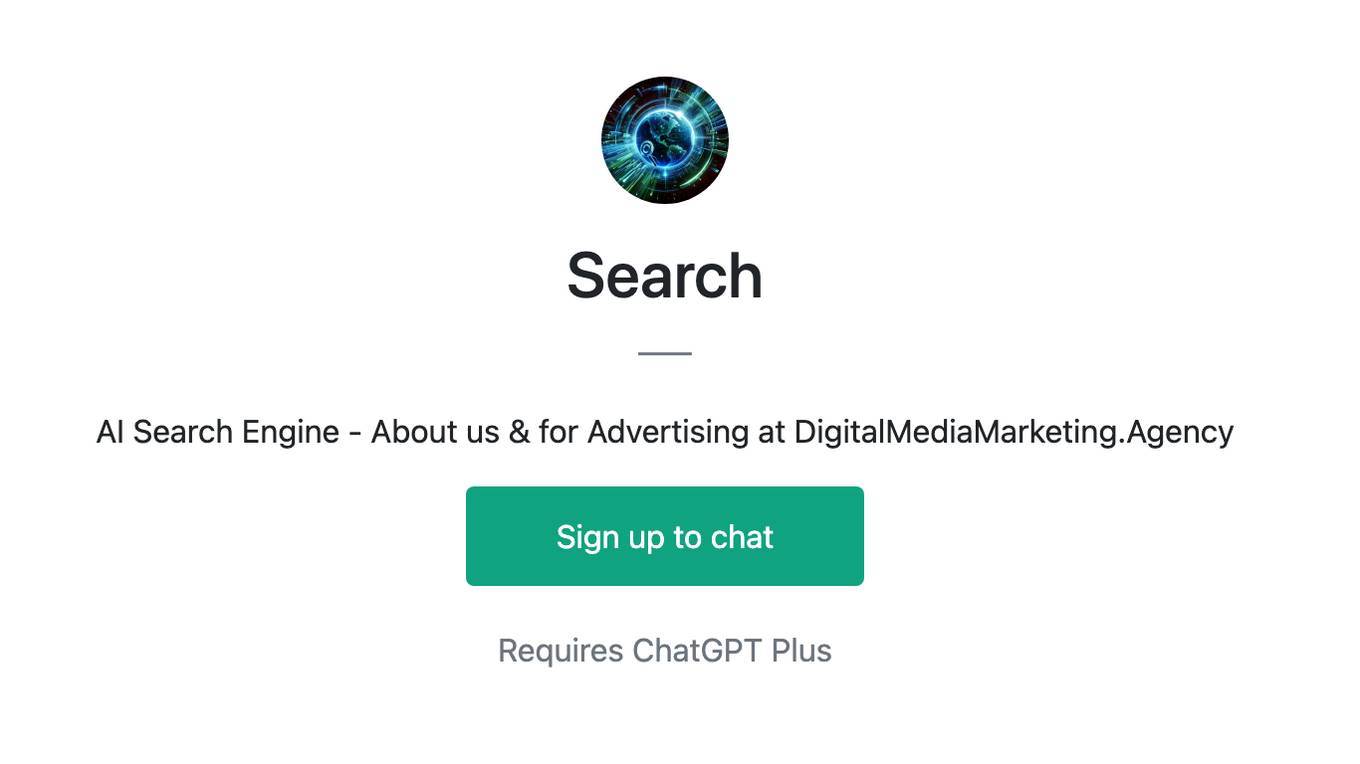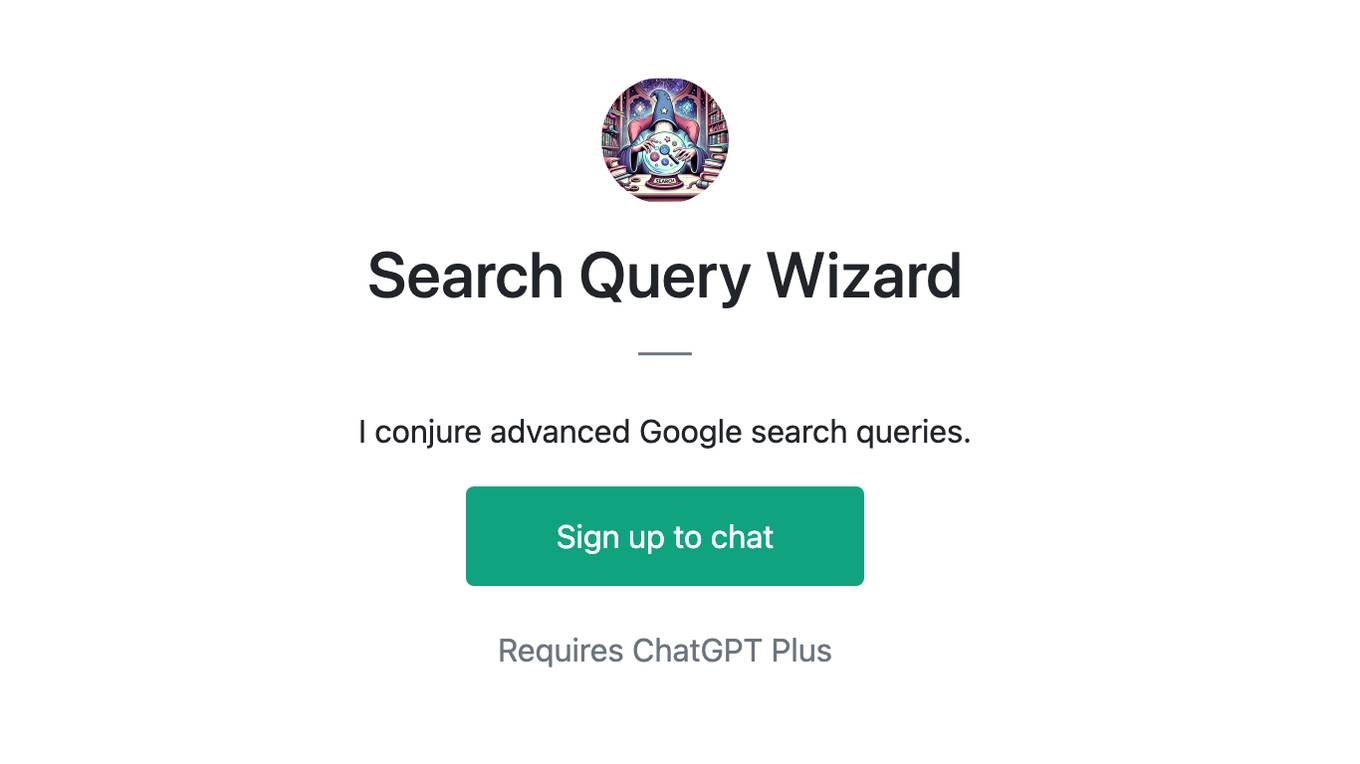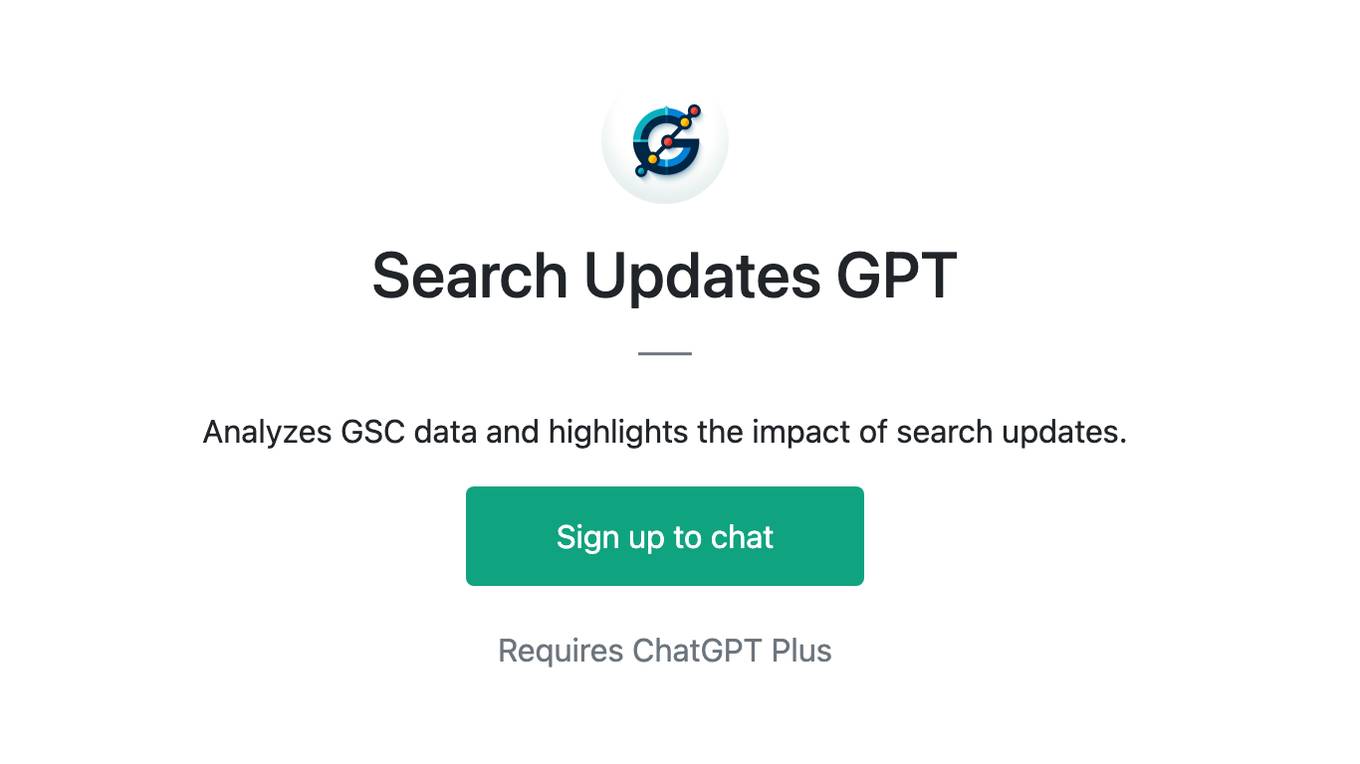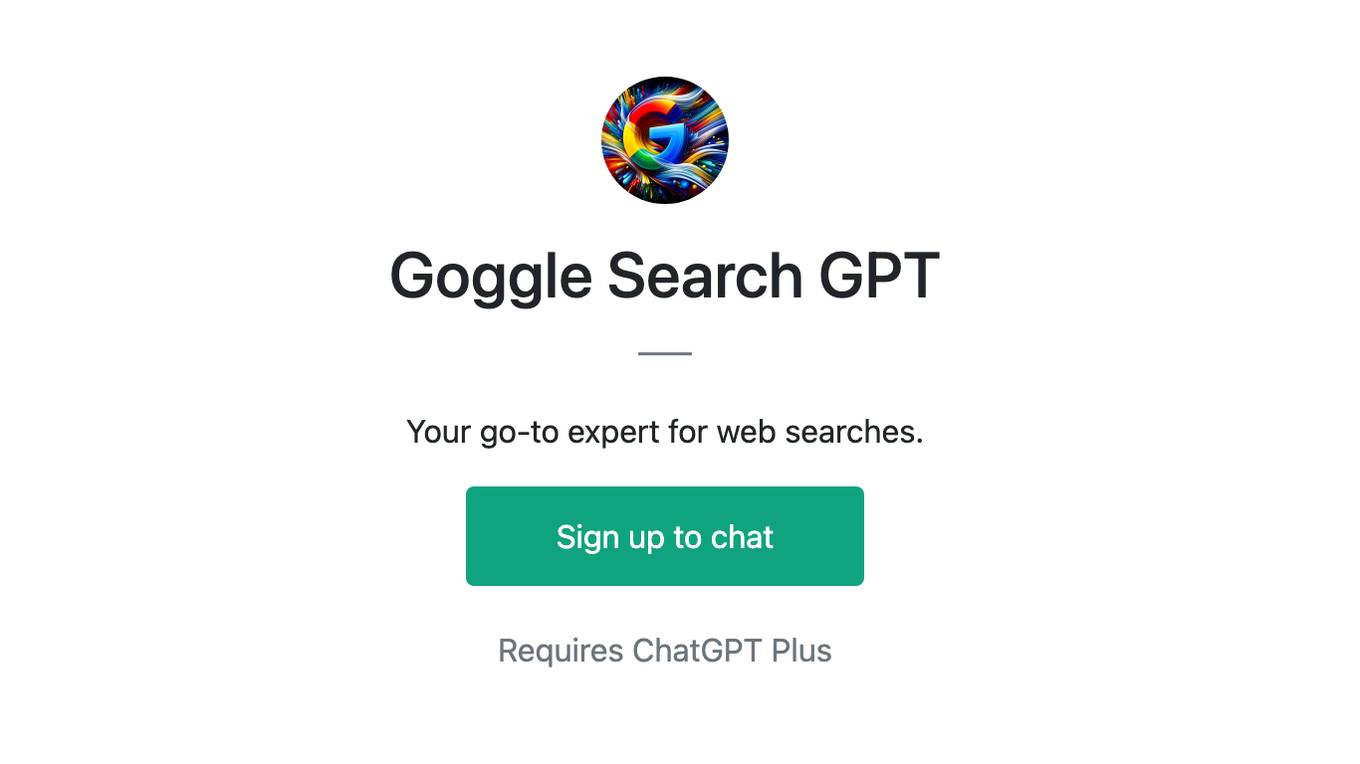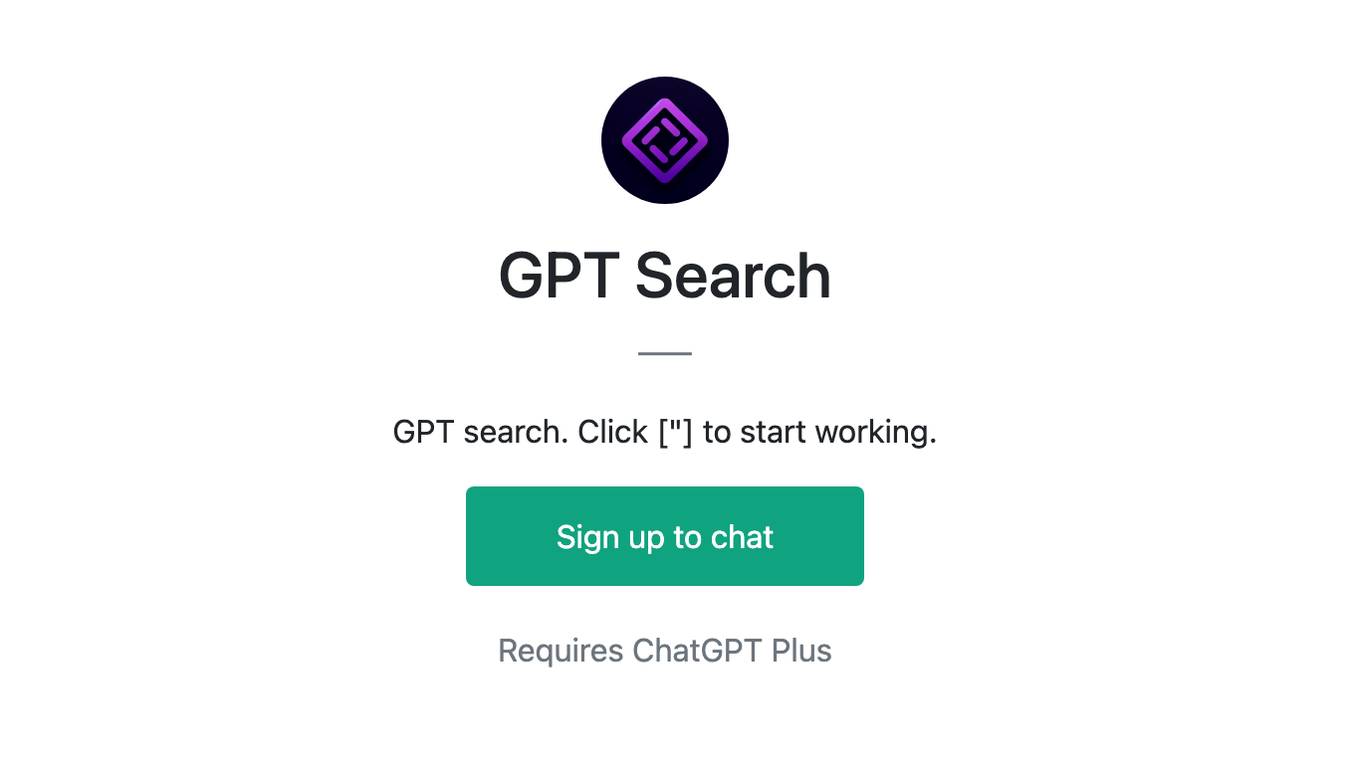Best AI tools for< Search Literature >
20 - AI tool Sites
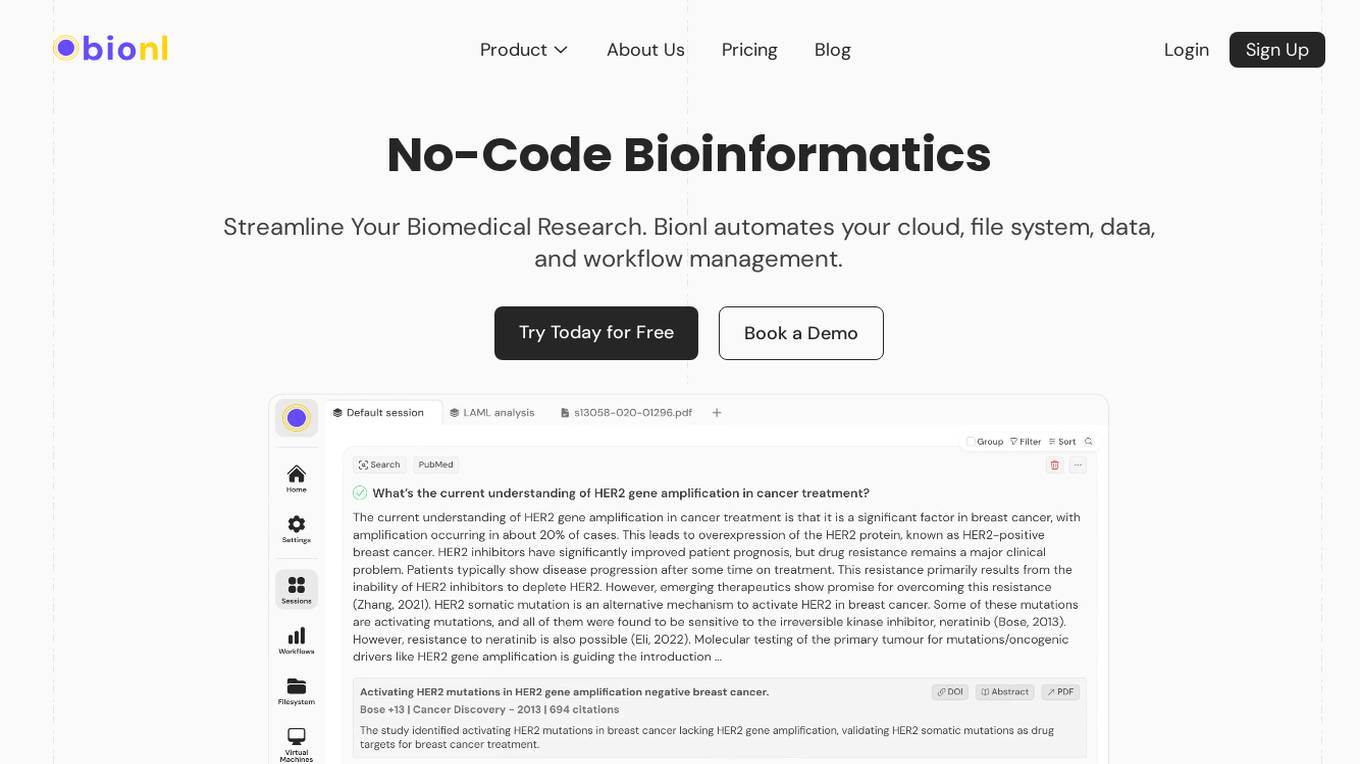
Bionl
Bionl is a no-code bioinformatics platform designed to streamline biomedical research for researchers and scientists. It offers a full workspace with features such as bioinformatics pipelines customization, GenAI for data analysis, AI-powered literature search, PDF analysis, and access to public datasets. Bionl aims to automate cloud, file system, data, and workflow management for efficient and precise analyses. The platform caters to Pharma and Biotech companies, academic researchers, and bioinformatics CROs, providing powerful tools for genetic analysis and speeding up research processes.
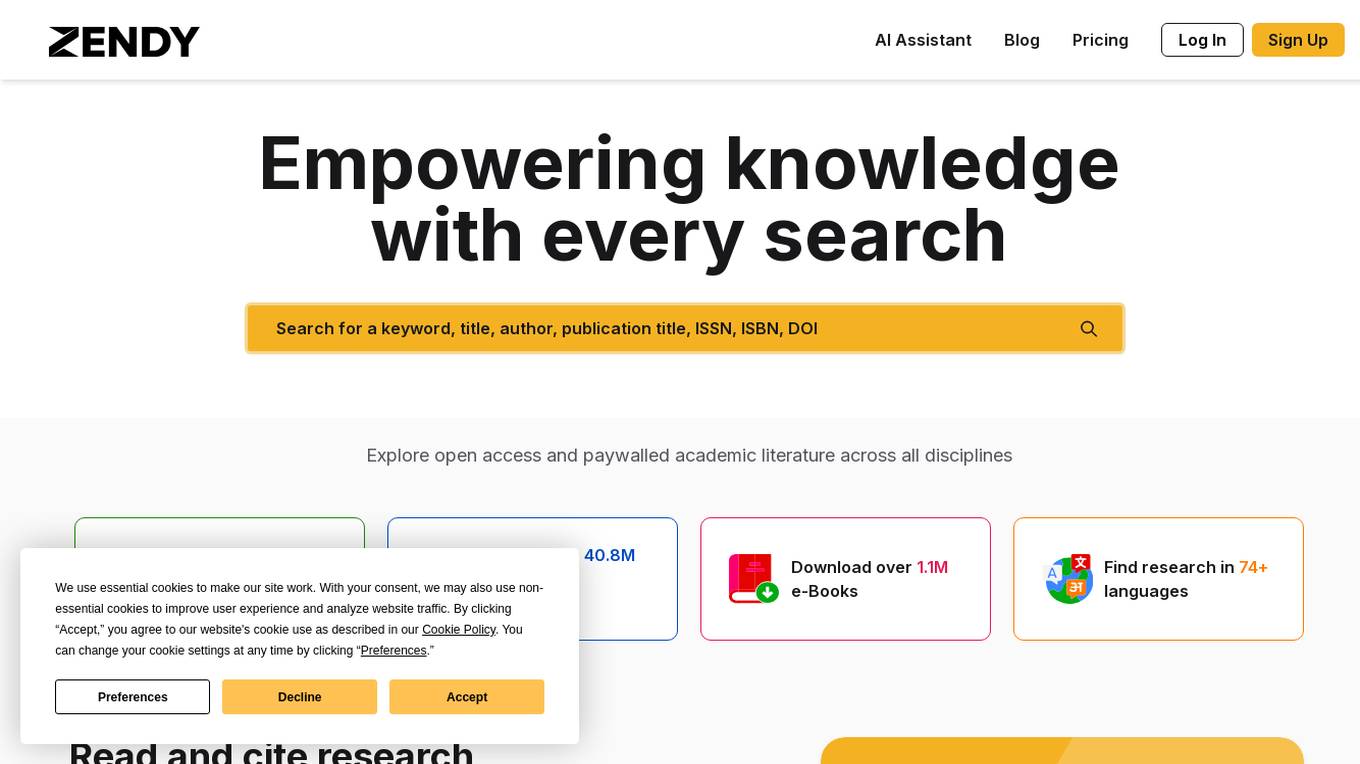
Zendy
Zendy is an AI-powered research library and AI assistant that empowers users to explore open access and paywalled academic literature across all disciplines. It offers tools for faster reading and citing of research papers, including AI summarization, key phrase highlighting, and organizing reading lists. With a user-friendly interface, Zendy helps users save time during literature review, making research more efficient and productive.
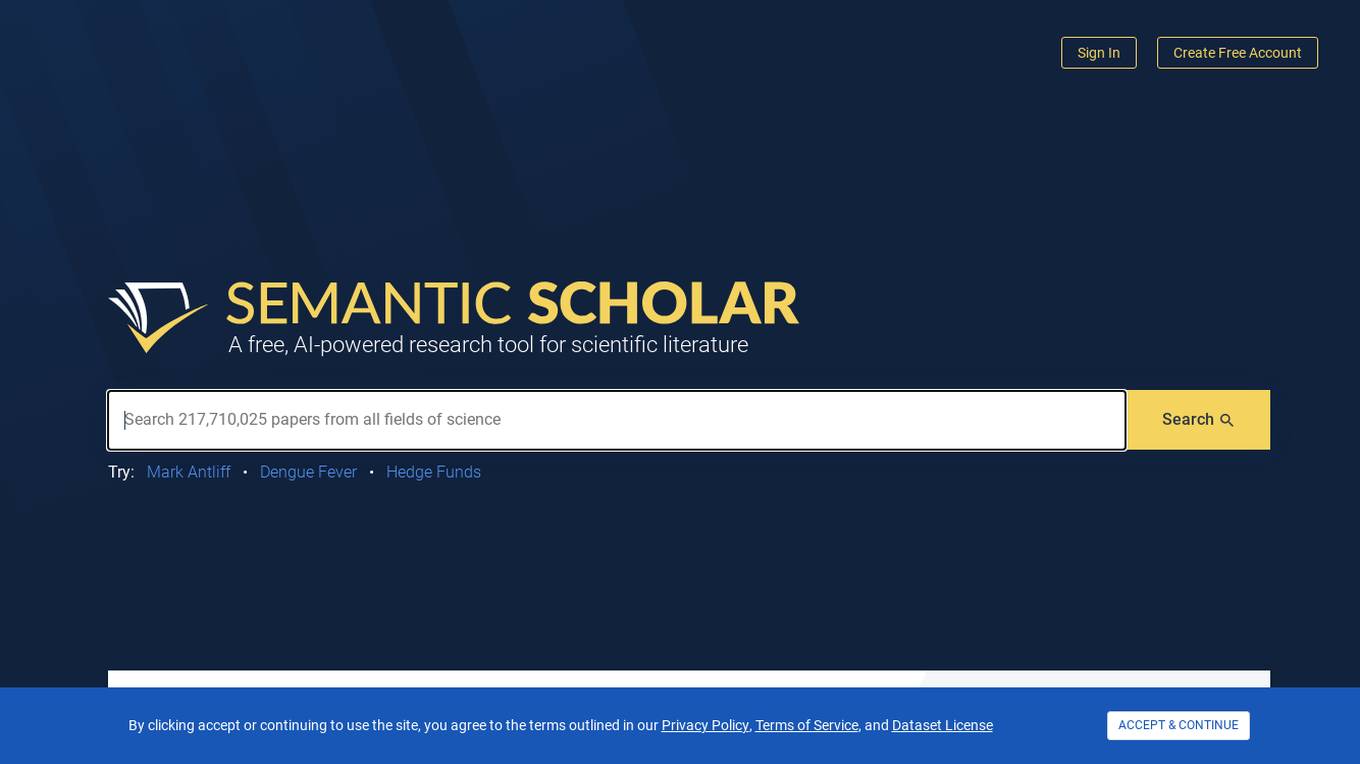
Semantic Scholar
Semantic Scholar is a free, AI-powered research tool for scientific literature. It is based at the Allen Institute for AI and provides access to over 217 million papers from all fields of science. Semantic Scholar uses AI to help users discover and explore scientific literature, and to stay up-to-date on the latest research. The tool also includes a number of features to help users manage their research, such as the ability to save papers, create bibliographies, and share research with others.
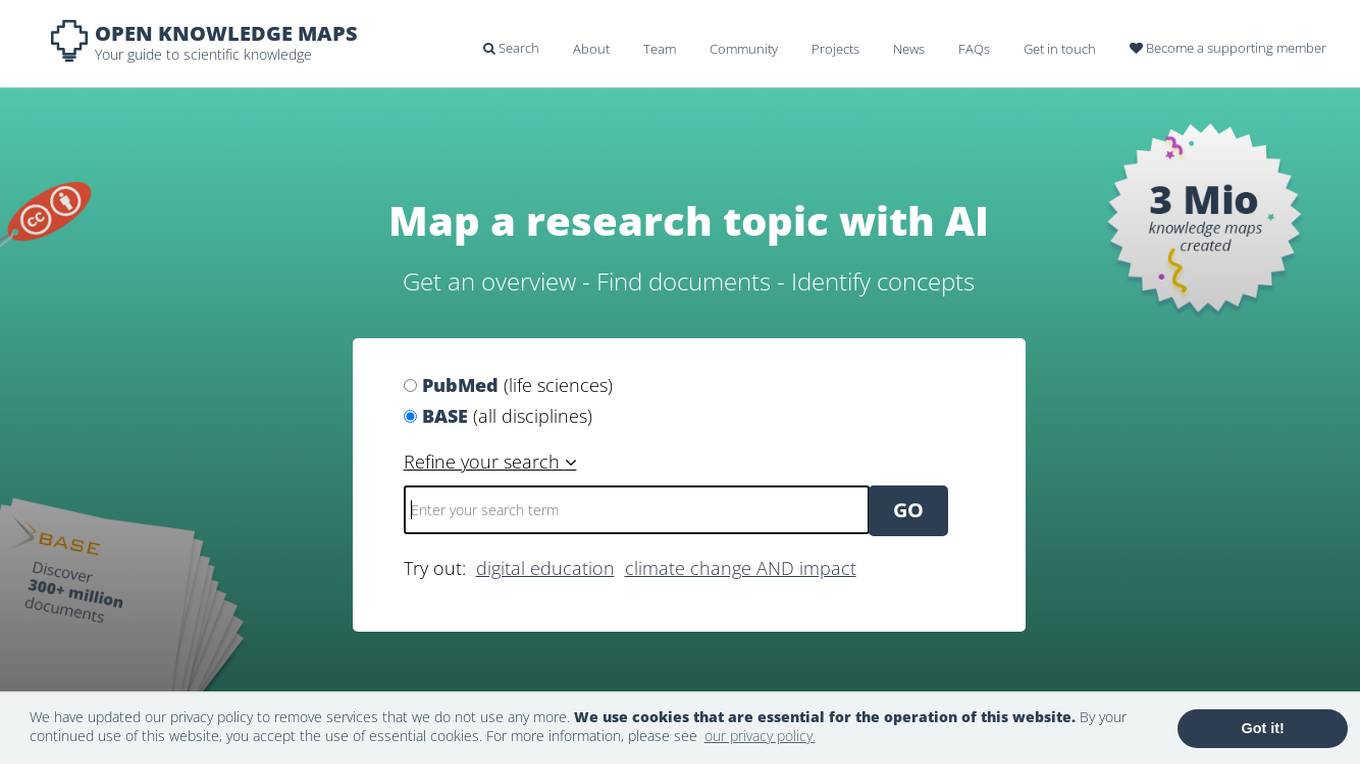
Open Knowledge Maps
Open Knowledge Maps is the world's largest AI-based search engine for scientific knowledge. It aims to revolutionize discovery by increasing the visibility of research findings for science and society. The platform is open and nonprofit, based on the principles of open science, with a mission to create an inclusive, sustainable, and equitable infrastructure for all users. Users can map research topics with AI, find documents, and identify concepts to enhance their literature search experience.
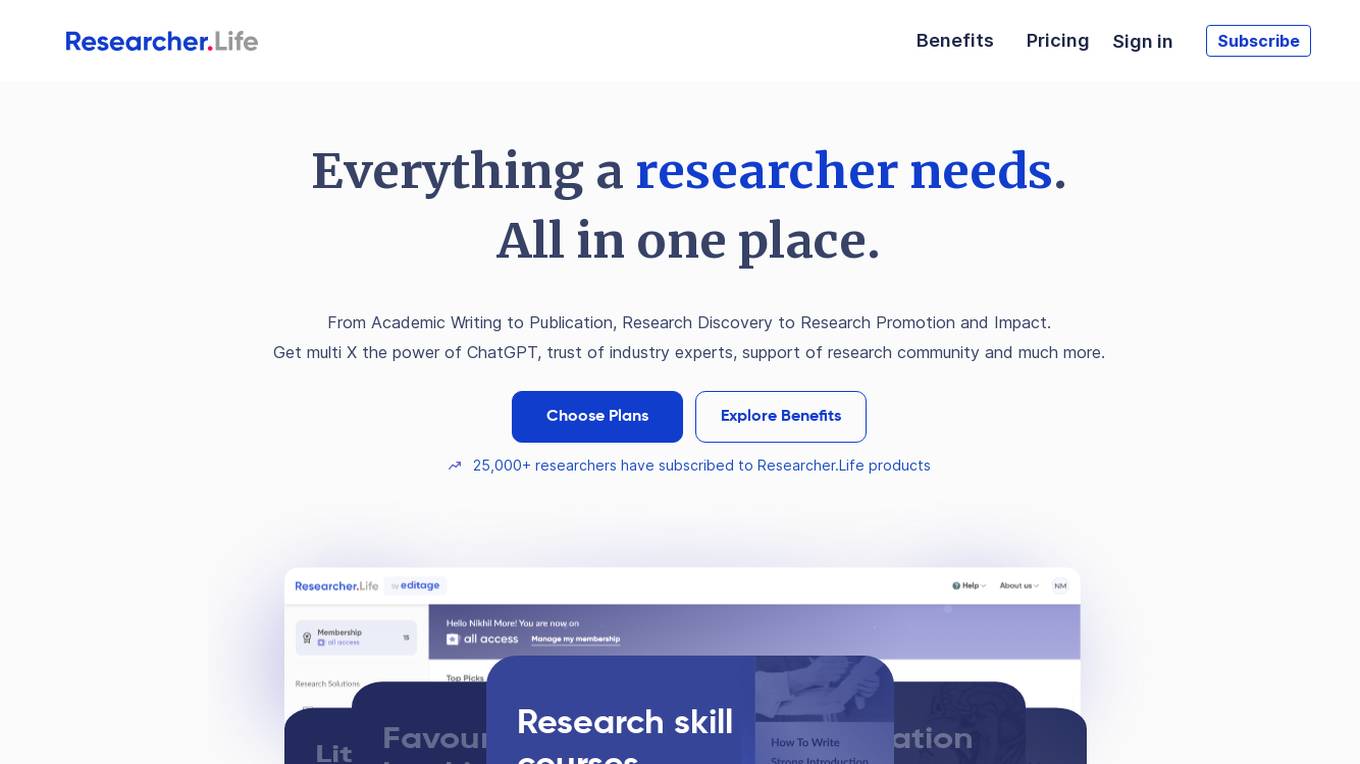
Researcher.Life
Researcher.Life is a comprehensive research support platform that provides AI-powered tools and expert publication services to empower researchers at every stage of their journey. With a suite of advanced AI tools, including Paperpal, R Discovery, and Mind the Graph, Researcher.Life helps researchers write better, discover relevant literature, create stunning scientific illustrations, and find the right journals for their work. Additionally, Researcher.Life offers expert publication services from Editage, ensuring that manuscripts are polished and ready for publication. By combining AI technology with human expertise, Researcher.Life simplifies complex research tasks, saves time, and accelerates the path to success for researchers worldwide.
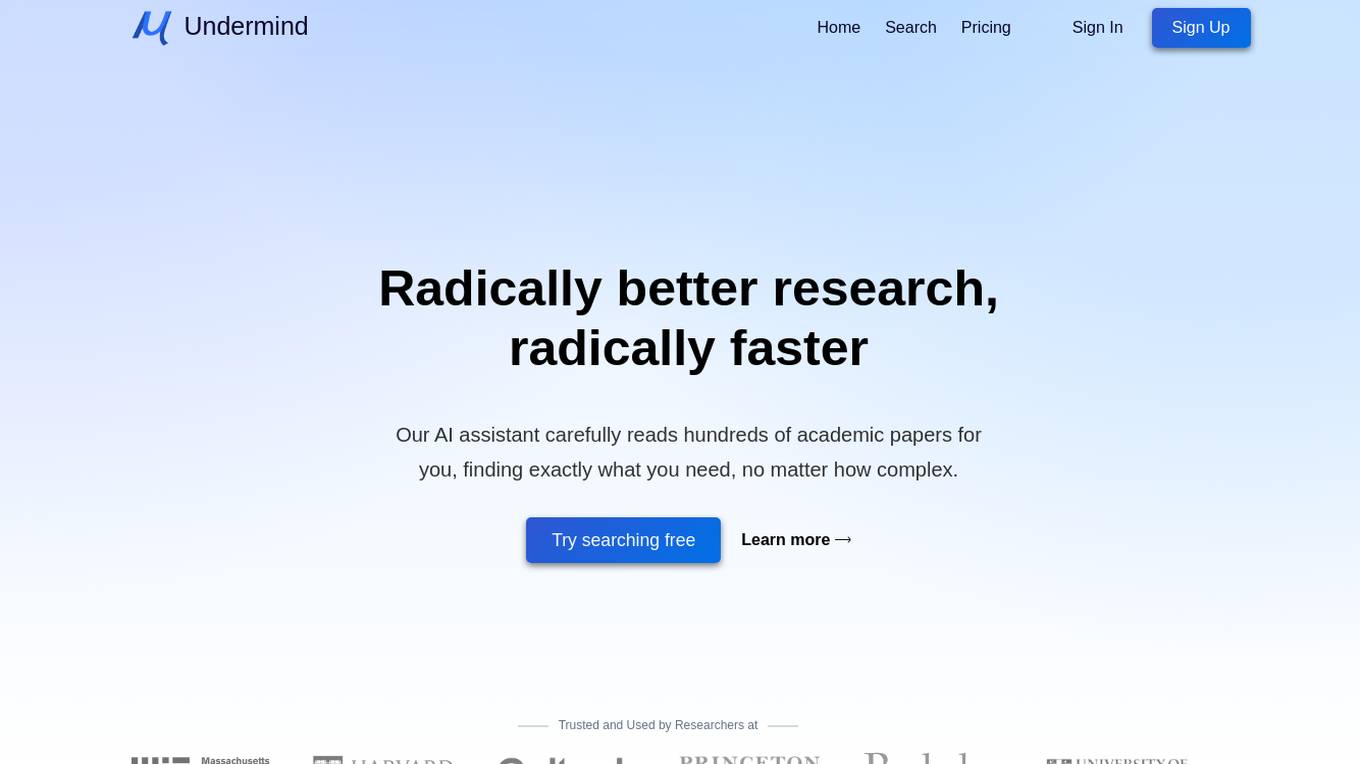
Undermind
Undermind is an AI-powered scientific research assistant that revolutionizes the way researchers access and analyze academic papers. By utilizing intelligent language models, Undermind reads and synthesizes information from hundreds of papers to provide accurate and comprehensive results. Researchers can describe their queries in natural language, and Undermind assists in finding relevant papers, brainstorming questions, and discovering crucial insights. Trusted by researchers across various fields, Undermind offers a unique approach to literature search, surpassing traditional search engines in accuracy and efficiency.
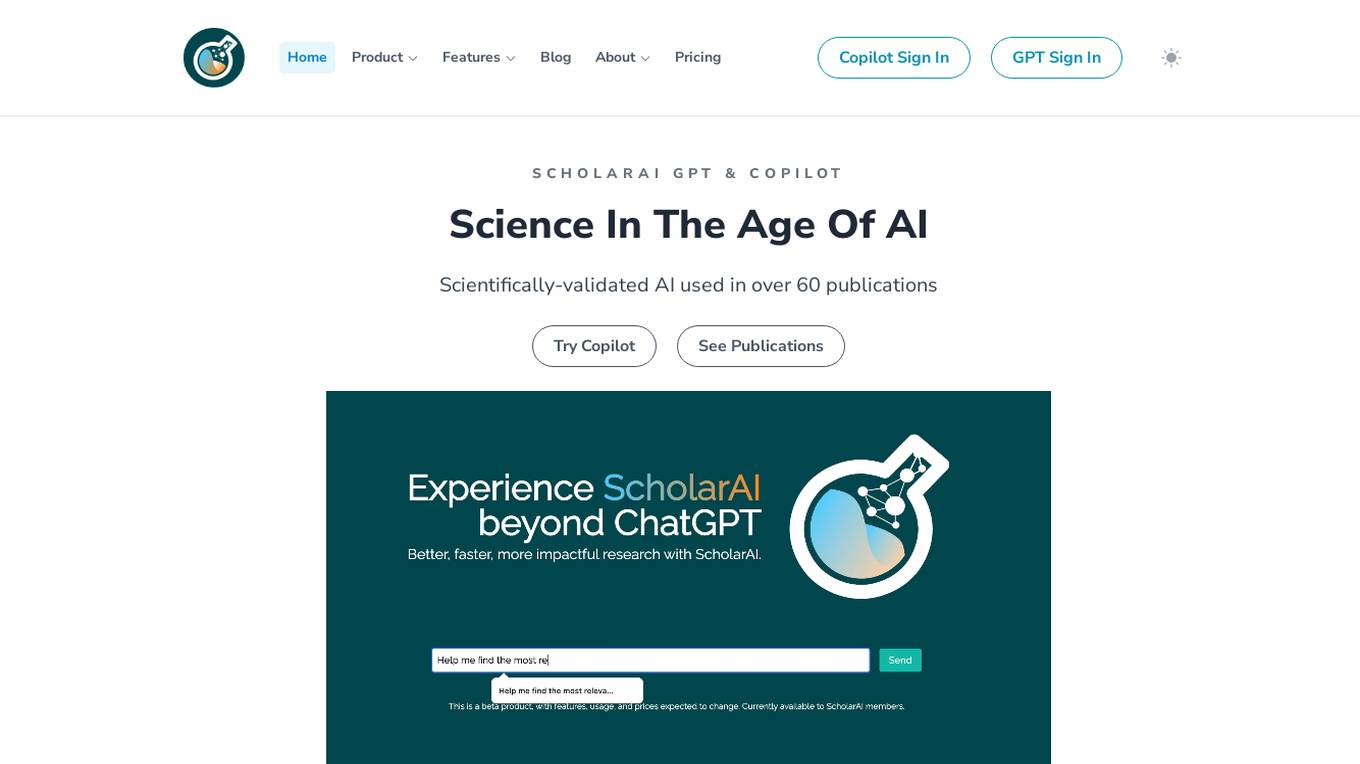
ScholarAI
ScholarAI is an AI-powered scientific research tool that offers a wide range of features to help users navigate and extract insights from scientific literature. With access to over 200 million peer-reviewed articles, ScholarAI allows users to conduct abstract searches, literature mapping, PDF reading, literature reviews, gap analysis, direct Q&A, table and figure extraction, citation management, and project management. The tool is designed to accelerate the research process and provide tailored scientific insights to users.

Google Patents
Google Patents is a search engine that allows users to search through the full text of patents that have been granted by the United States Patent and Trademark Office (USPTO). The database includes patents from 1790 to the present day, and users can search by keyword, inventor, assignee, or patent number. Google Patents also provides access to images of the original patent documents, as well as links to related patents and articles.
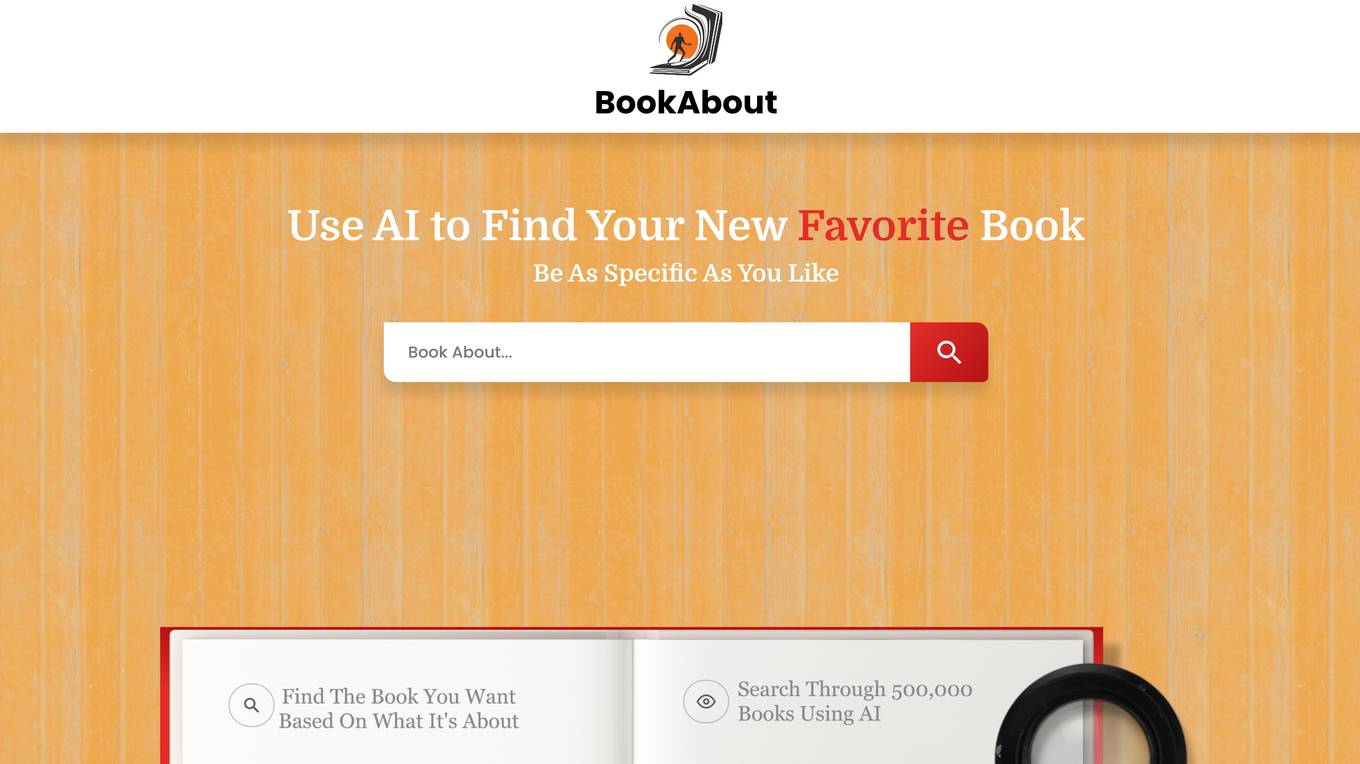
BookAbout
BookAbout is an AI-powered application that helps users discover their next favorite book. By leveraging artificial intelligence technology, BookAbout provides personalized book recommendations based on users' preferences and reading history. Users can be as specific as they like in their search for a new book, ensuring that they find the perfect read every time. As an Amazon Associate, BookAbout may earn a commission from qualifying purchases made through Amazon store links.
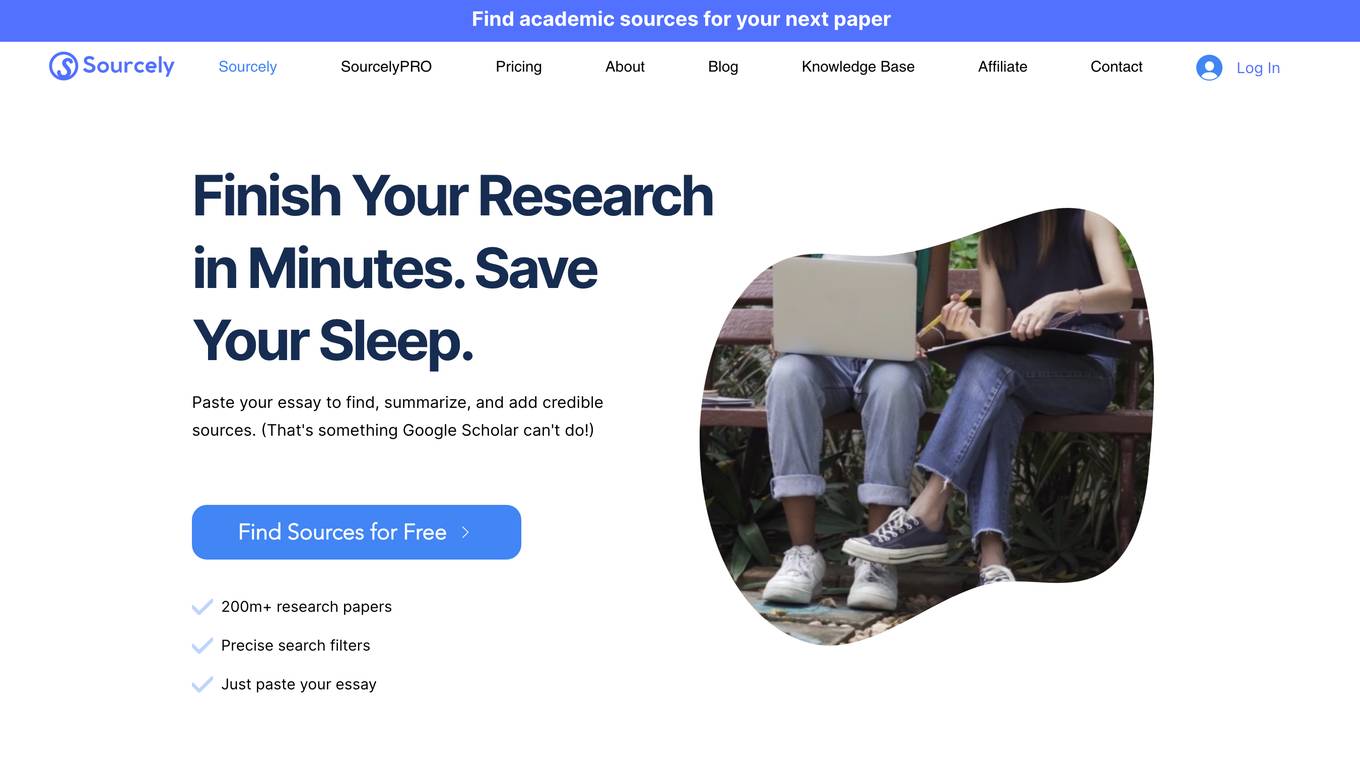
Sourcely
Sourcely is an AI-powered academic search assistant that helps users find, summarize, and add credible academic sources. It offers access to over 200 million research papers, advanced search filters, targeted citations, free PDF downloads, citations library, credible summaries, export references, advanced filters, deep academic search, and the ability to chat with sources. Sourcely streamlines the research process, saves time, and enhances the quality of academic work by automating the search for appropriate citations.

Systematic Review Tools
Systematic Review Tools is an AI-powered research workflow platform that offers a comprehensive suite of tools for efficient systematic literature reviews. The platform streamlines the research process by providing automated search strategies, efficient screening, customizable workflows, risk of bias assessment, evidence tables generation, and exportable reports. It harnesses the power of AI and automation to revolutionize the research process, making it faster, more accurate, and more efficient.
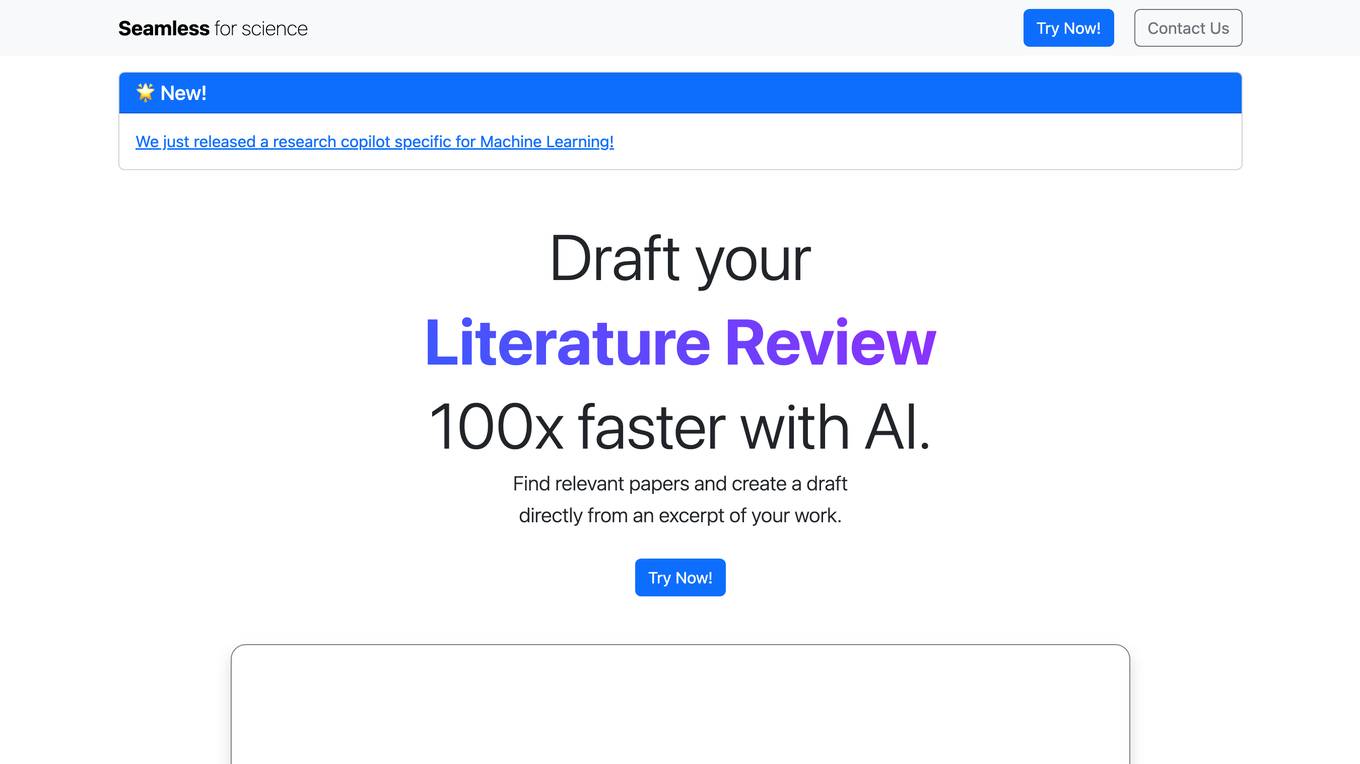
Seamless
Seamless is an AI-powered literature review tool and scholarship search assistant designed to revolutionize the academic journey for students and researchers. It utilizes advanced AI technology to generate comprehensive literature reviews, provide AI-driven scholarship search and application tools, and offer essay writing assistance. With Seamless, users can accelerate their research process, find relevant papers, apply for scholarships, and receive real-time feedback on their writing. The application aims to redefine the creation of literature reviews through the seamless integration of AI technology.
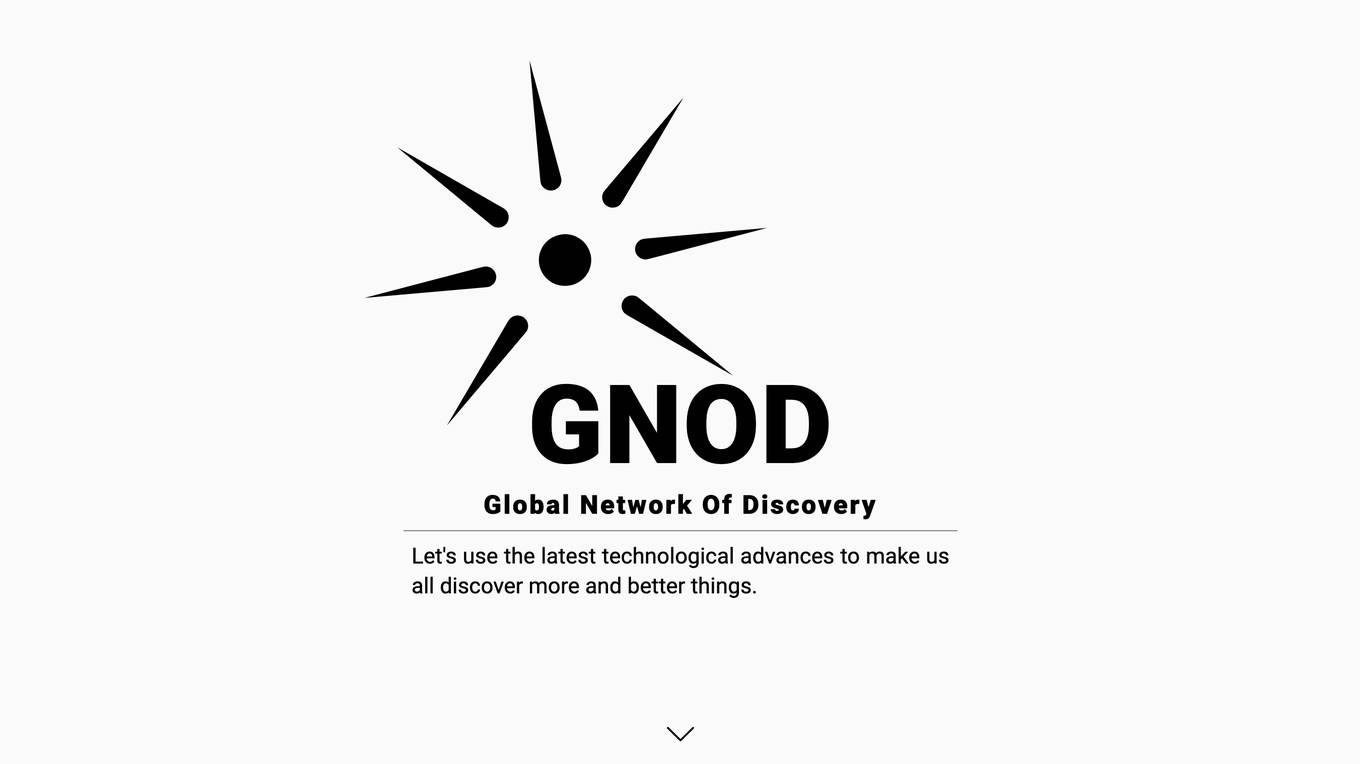
Gnod
Gnod is a global network of discovery that uses artificial intelligence to help users discover new things they might like. It offers a variety of projects, including music, art, literature, and movies. Gnod also has a search engine comparison tool that allows users to select an engine every time they search.
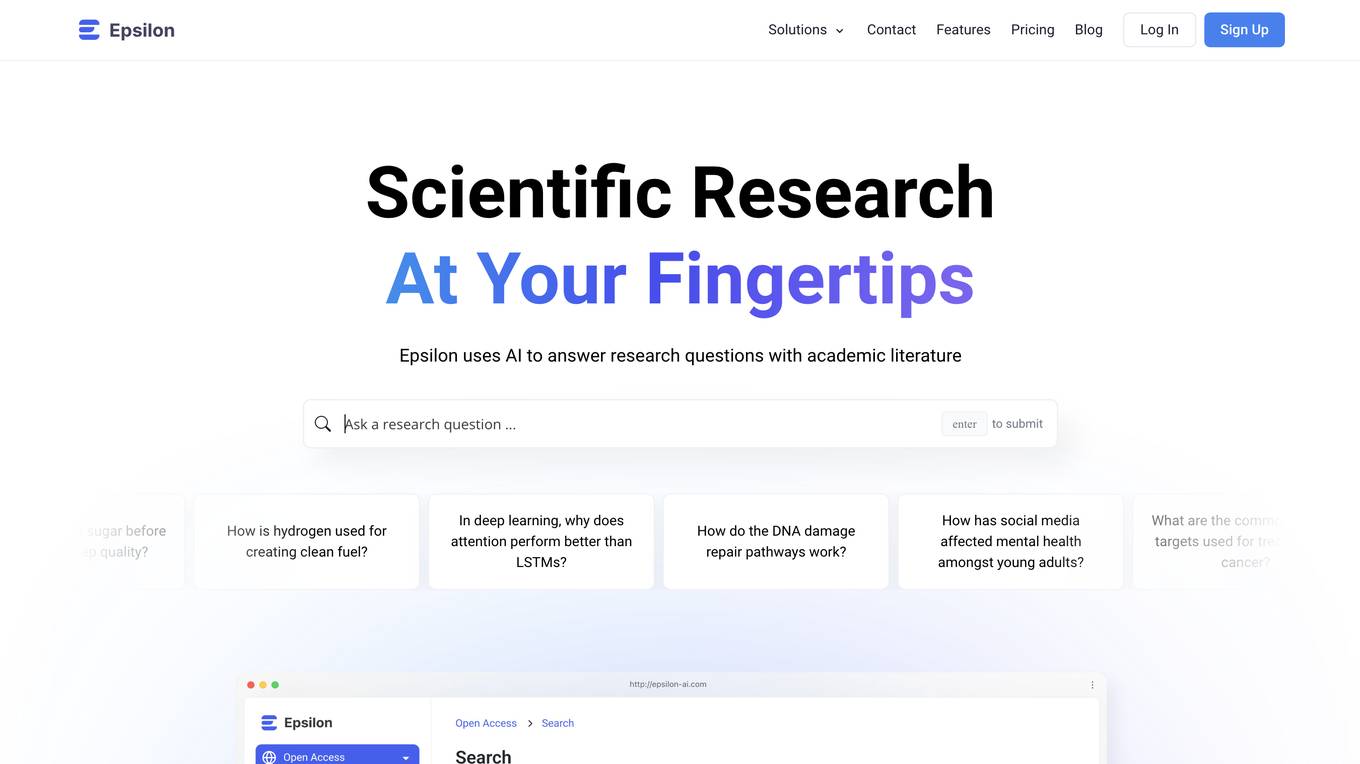
Epsilon
Epsilon is an AI search engine designed for scientific research solutions. It helps researchers find evidence, citations, and relevant information from over 200 million academic papers. Epsilon can summarize passages, group search results, extract key information from multiple papers, and provide comprehensive summaries. Trusted by over 30,000 researchers worldwide, Epsilon is a reliable tool for conducting literature reviews, drafting proposals, and executing research projects.
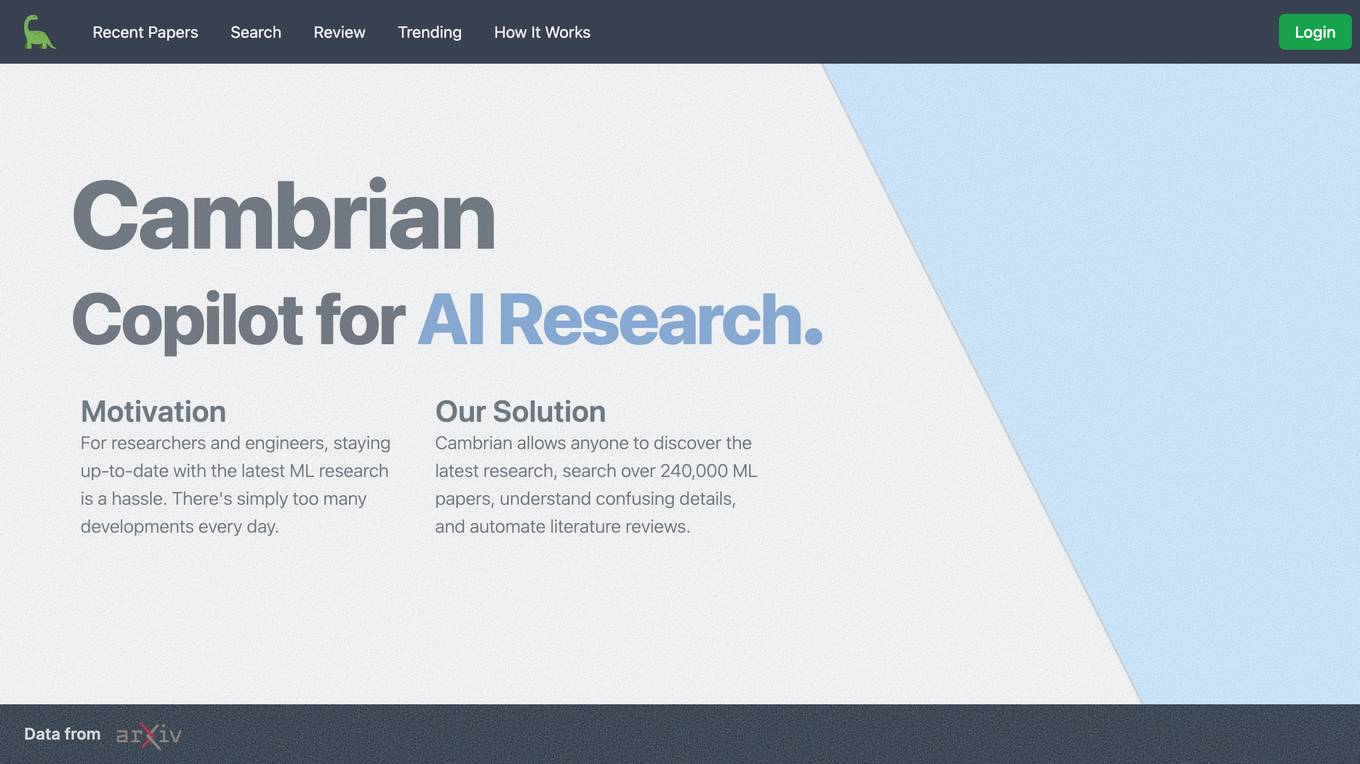
Cambrian Copilot
Cambrian Copilot is an AI tool designed for researchers and engineers to stay up-to-date with the latest machine learning research. With the ability to search over 240,000 ML papers, the tool helps users discover new research, understand complex details, and automate literature reviews. It simplifies the process of keeping track of the rapid developments in the field of machine learning.
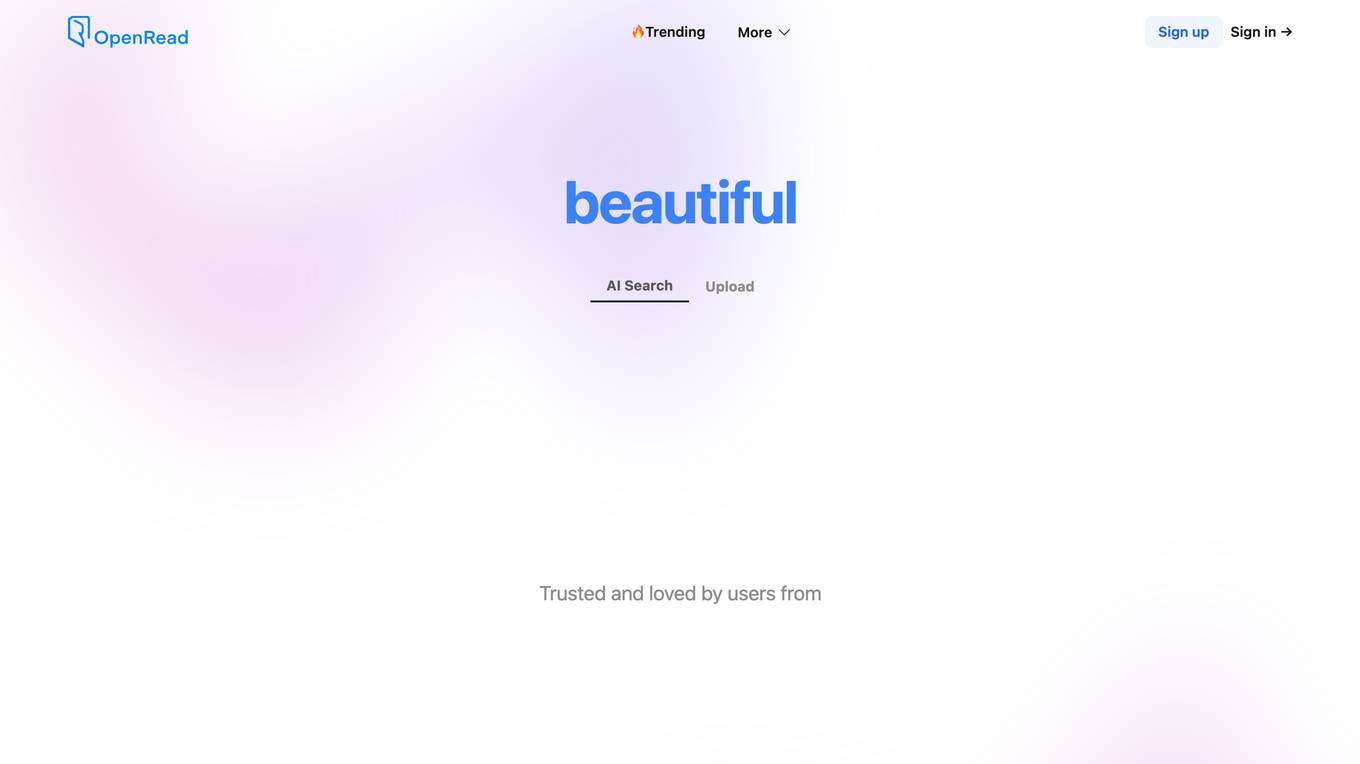
OpenRead
OpenRead is an AI-powered research tool that helps users discover, understand, and organize scientific literature. It offers a variety of features to make research more efficient and effective, including semantic search, AI summarization, and note-taking tools. OpenRead is designed to help researchers of all levels, from students to experienced professionals, save time and improve their research outcomes.

Search Atlas
Search Atlas is the #1 AI SEO Automation Platform designed for agencies and brands. It offers a comprehensive suite of tools for managing Google Ads with AI, automating SEO tasks, generating AI content, conducting keyword research, and optimizing website performance. The platform is known for its enterprise SEO software, local citation builder, content tools like AI content writer and content planner, research tools like outreach tool and site explorer, and customization options for branding. Search Atlas helps agencies and brands improve strategy, accelerate workflows, and deliver quicker wins in organic marketing campaigns.

AI Video Search Engine
The website is a platform that offers an AI Video Search Engine. Users can index videos, sign in, and explore topics related to the human brain, Supabase, startups, AI image generation, and the future of startups. The platform has indexed 17272 videos over 277758 minutes. Users can view the code on Github or follow the creator.

Search Alkemy
Search Alkemy is a free AI-powered SEO keyword research and topic clustering tool that helps content marketers and SEOs discover high-performing keywords, analyze search intent, and create content that ranks. With Search Alkemy, you can:

Biblos Semantic Bible Search & Summary
Biblos Semantic Bible Search & Summary is an AI-powered tool designed to provide a powerful Bible search experience. It offers semantic search capabilities and a powerful understanding model to enhance the user's exploration of the Bible. The tool allows users to search and summarize content from both the Old Testament and the New Testament, providing lightning-fast search results for a seamless user experience.
1 - Open Source AI Tools
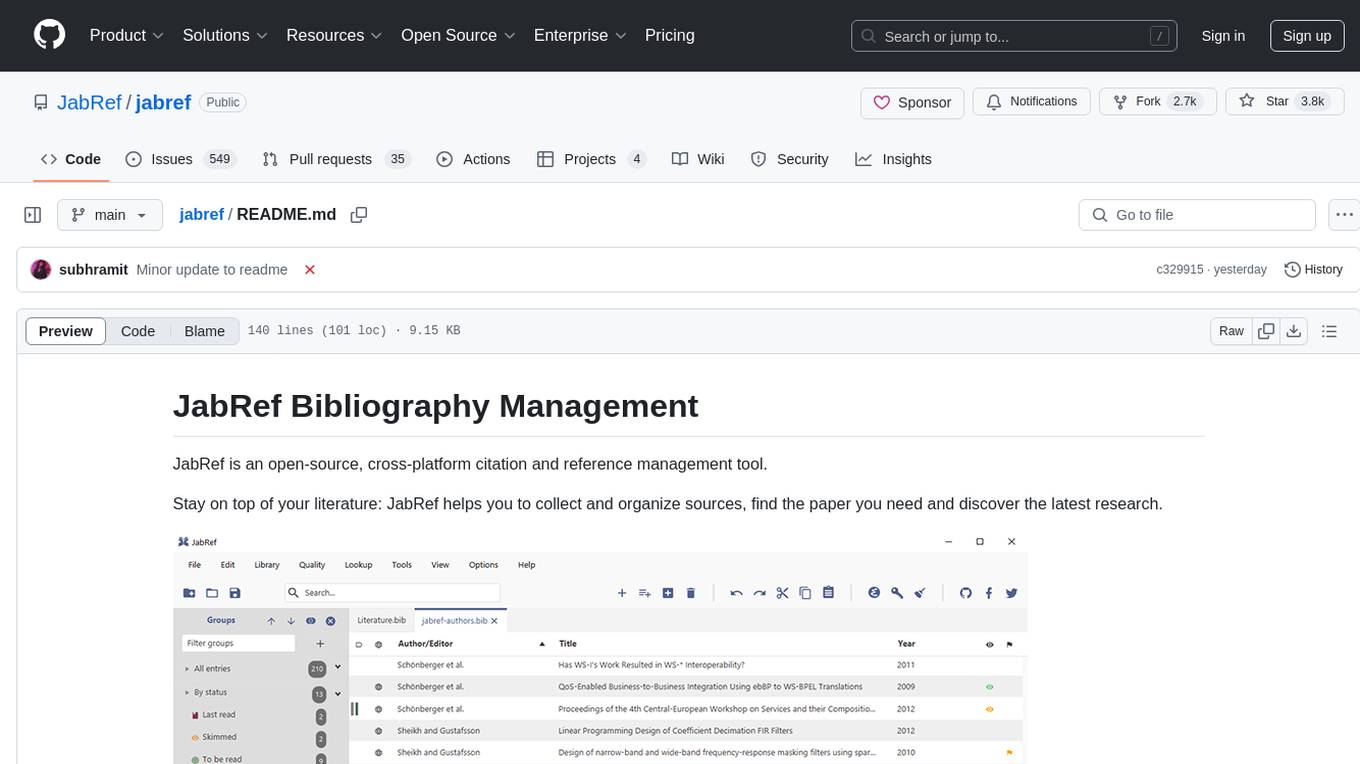
jabref
JabRef is an open-source, cross-platform citation and reference management tool that helps users collect, organize, cite, and share research sources. It offers features like searching across online scientific catalogues, importing references in various formats, extracting metadata from PDFs, customizable citation key generator, support for Word and LibreOffice/OpenOffice, and more. Users can organize their research items hierarchically, find and merge duplicates, attach related documents, and keep track of what they read. JabRef also supports sharing via various export options and syncs library contents in a team via a SQL database. It is actively developed, free of charge, and offers native BibTeX and Biblatex support.
20 - OpenAI Gpts
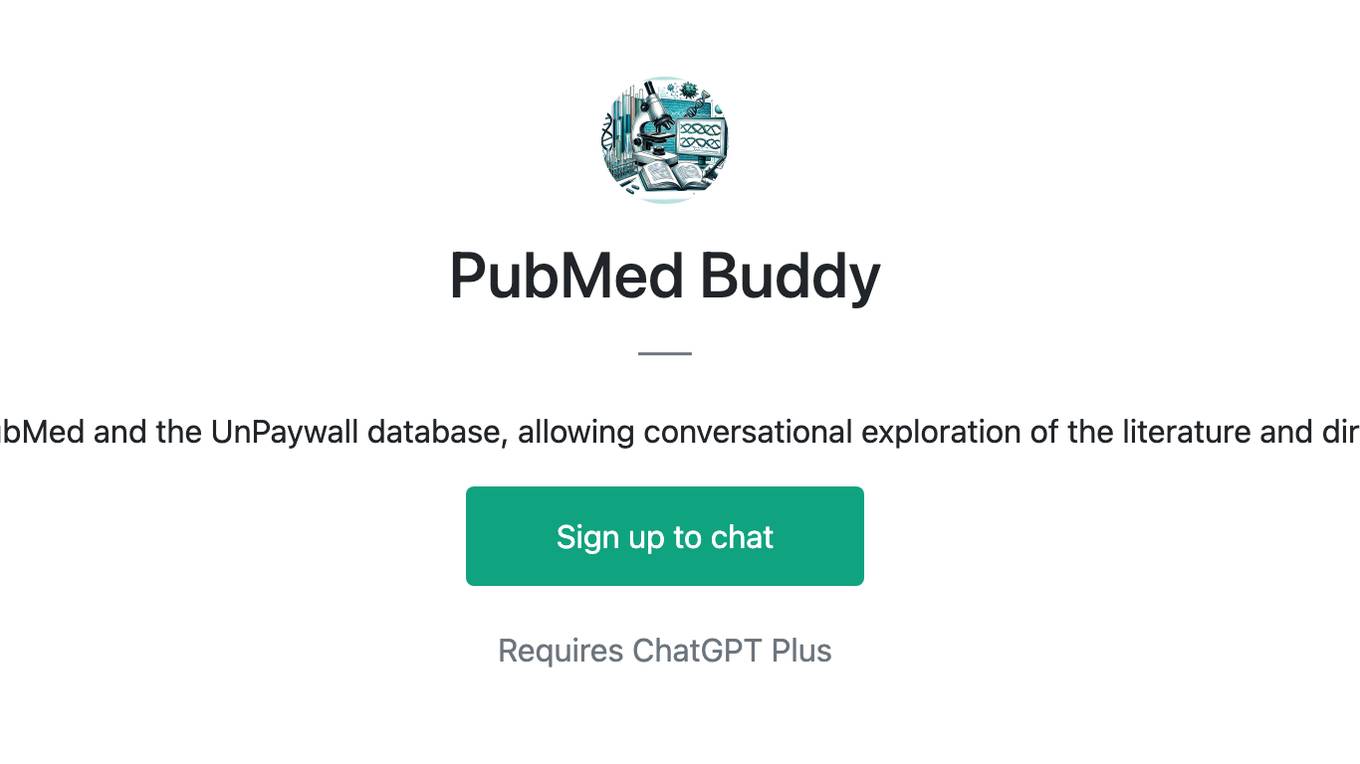
PubMed Buddy
This GPT has access to both PubMed and the UnPaywall database, allowing conversational exploration of the literature and direct access to full-text articles

Search Ads Headline Generator
Creates Google Ads headlines in bulk based on direct response copy principles.
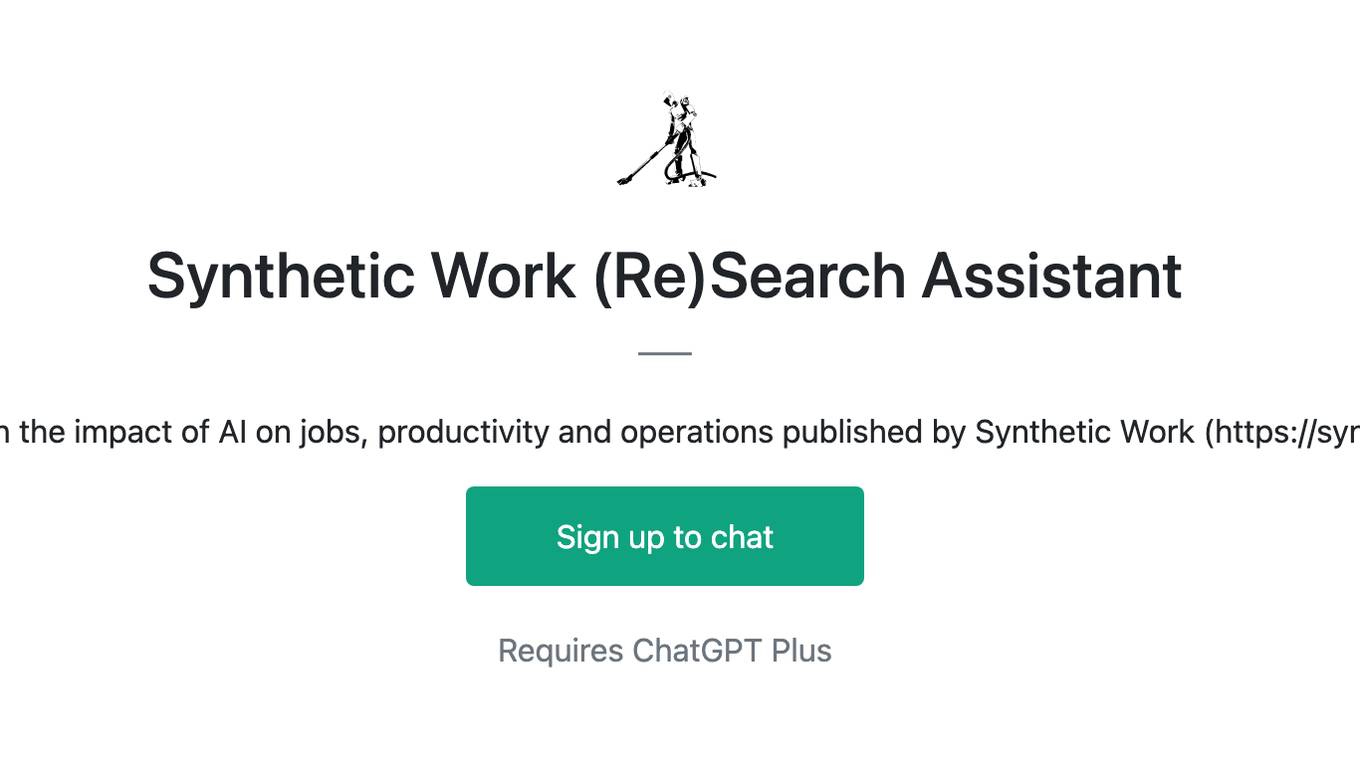
Synthetic Work (Re)Search Assistant
Search data on the impact of AI on jobs, productivity and operations published by Synthetic Work (https://synthetic.work)
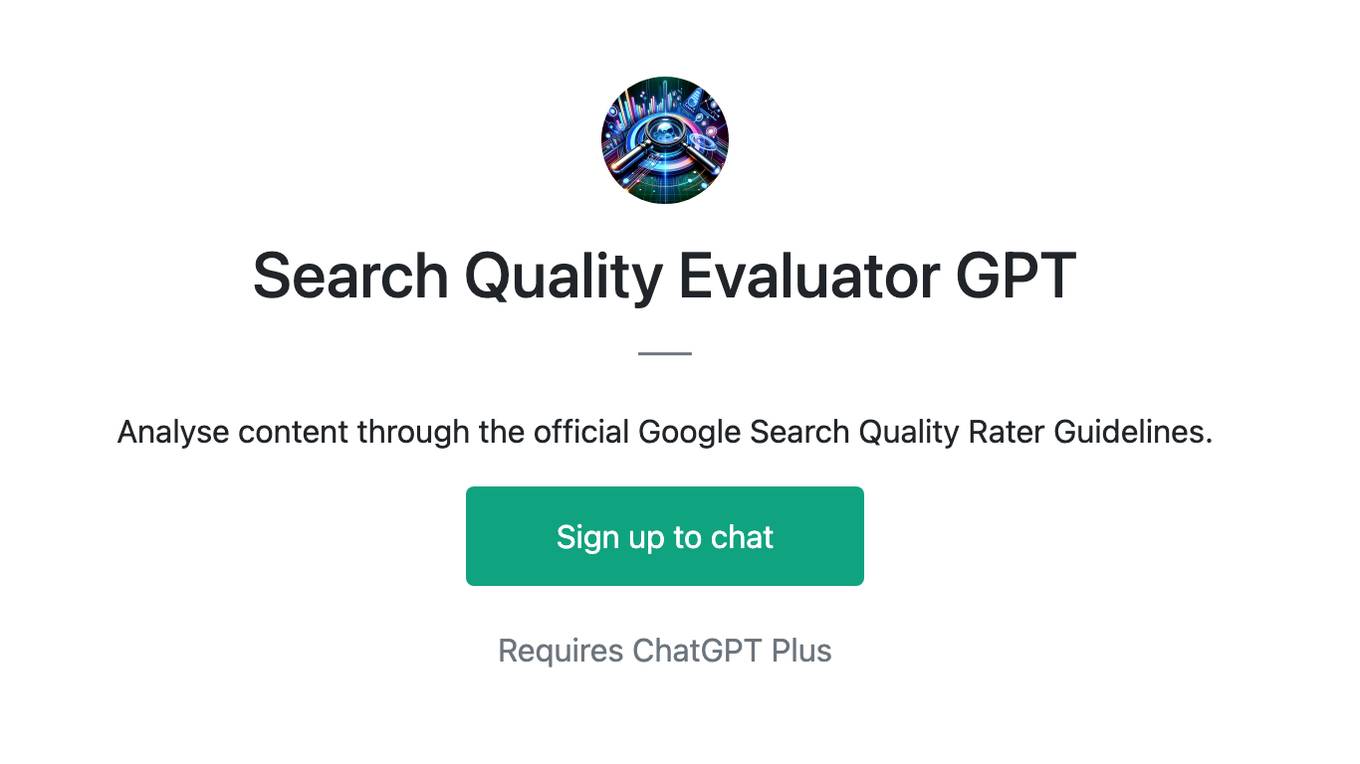
Search Quality Evaluator GPT
Analyse content through the official Google Search Quality Rater Guidelines.
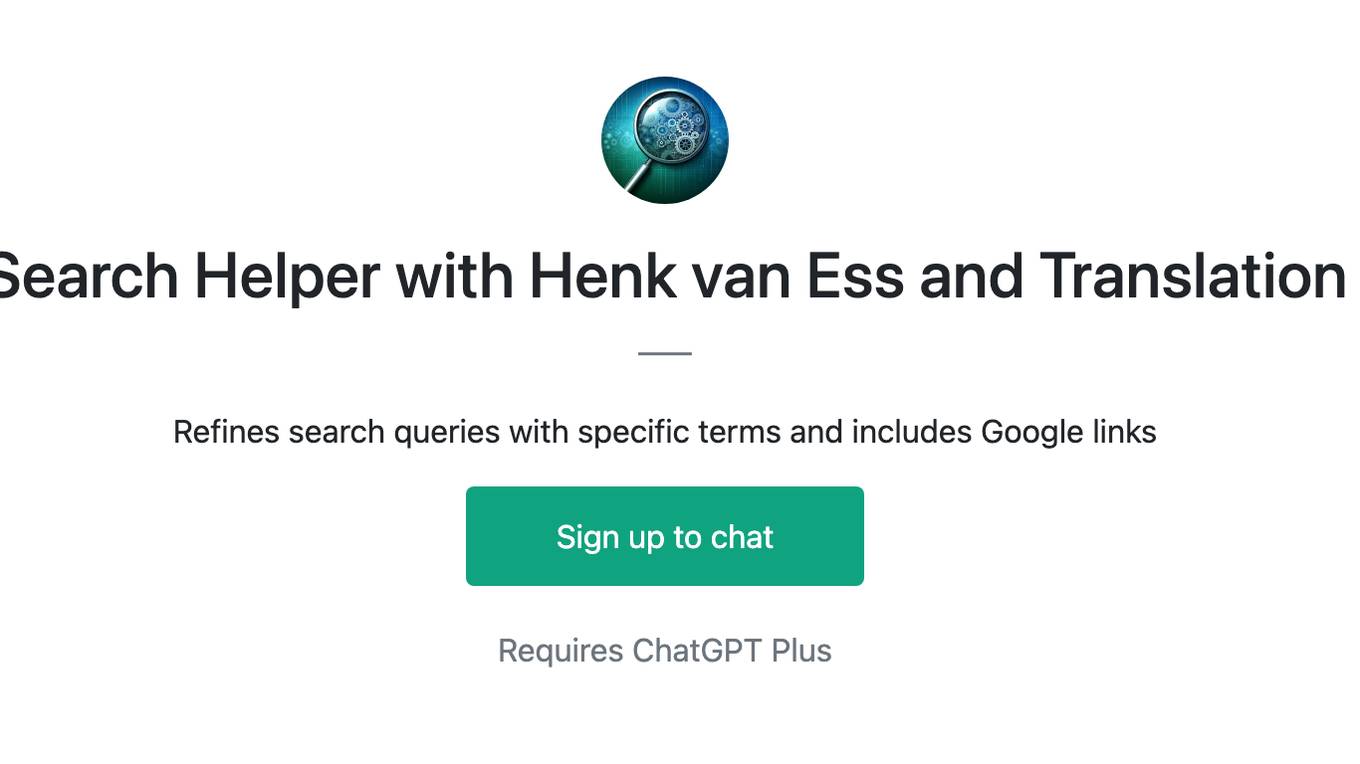
Search Helper with Henk van Ess and Translation
Refines search queries with specific terms and includes Google links
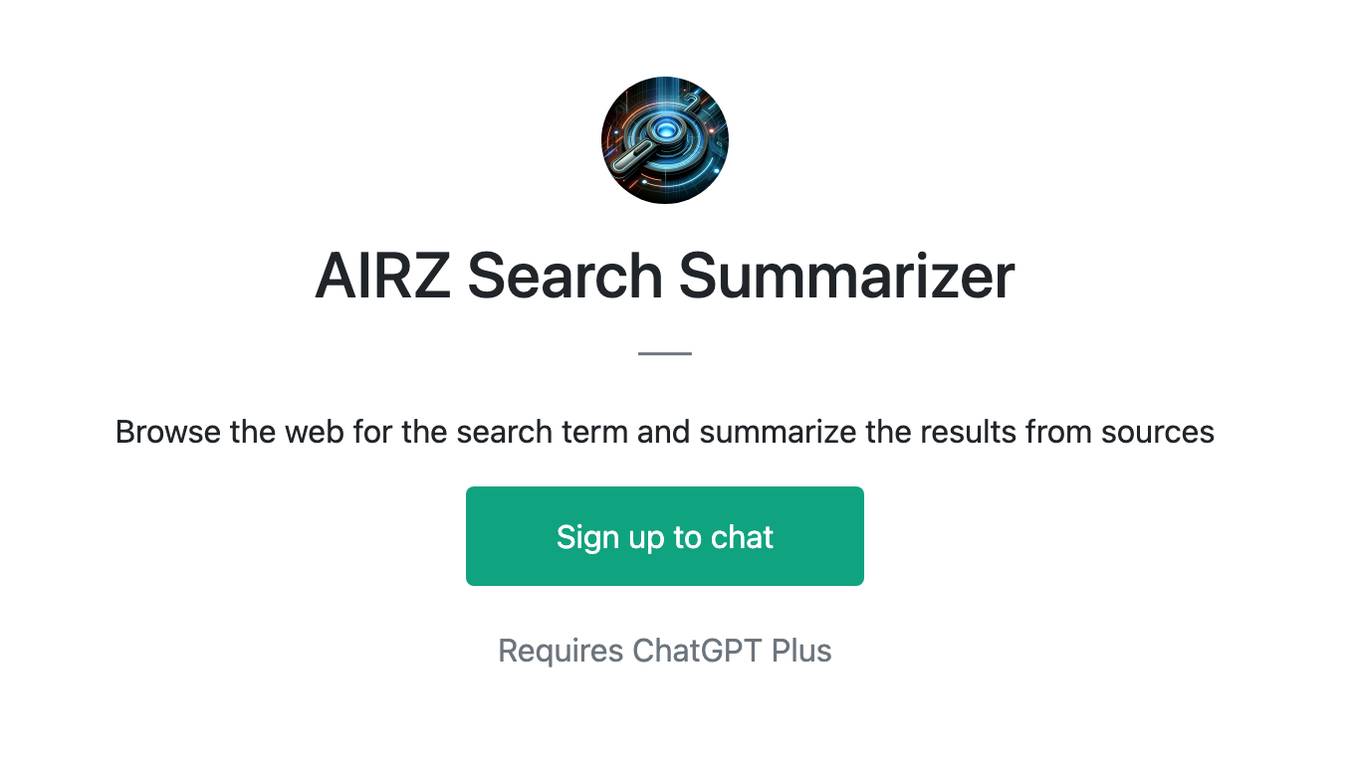
AIRZ Search Summarizer
Browse the web for the search term and summarize the results from sources
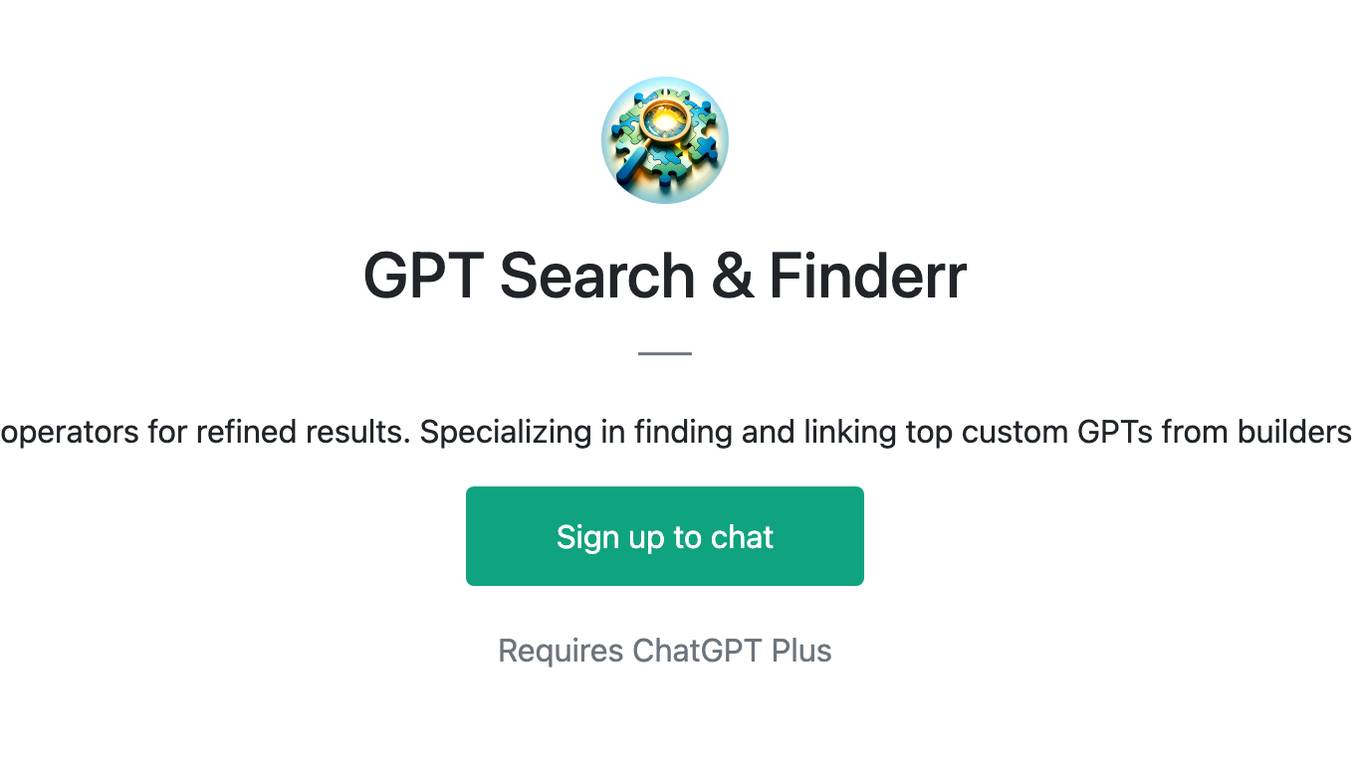
GPT Search & Finderr
Optimized with advanced search operators for refined results. Specializing in finding and linking top custom GPTs from builders around the world. Version 0.3.0
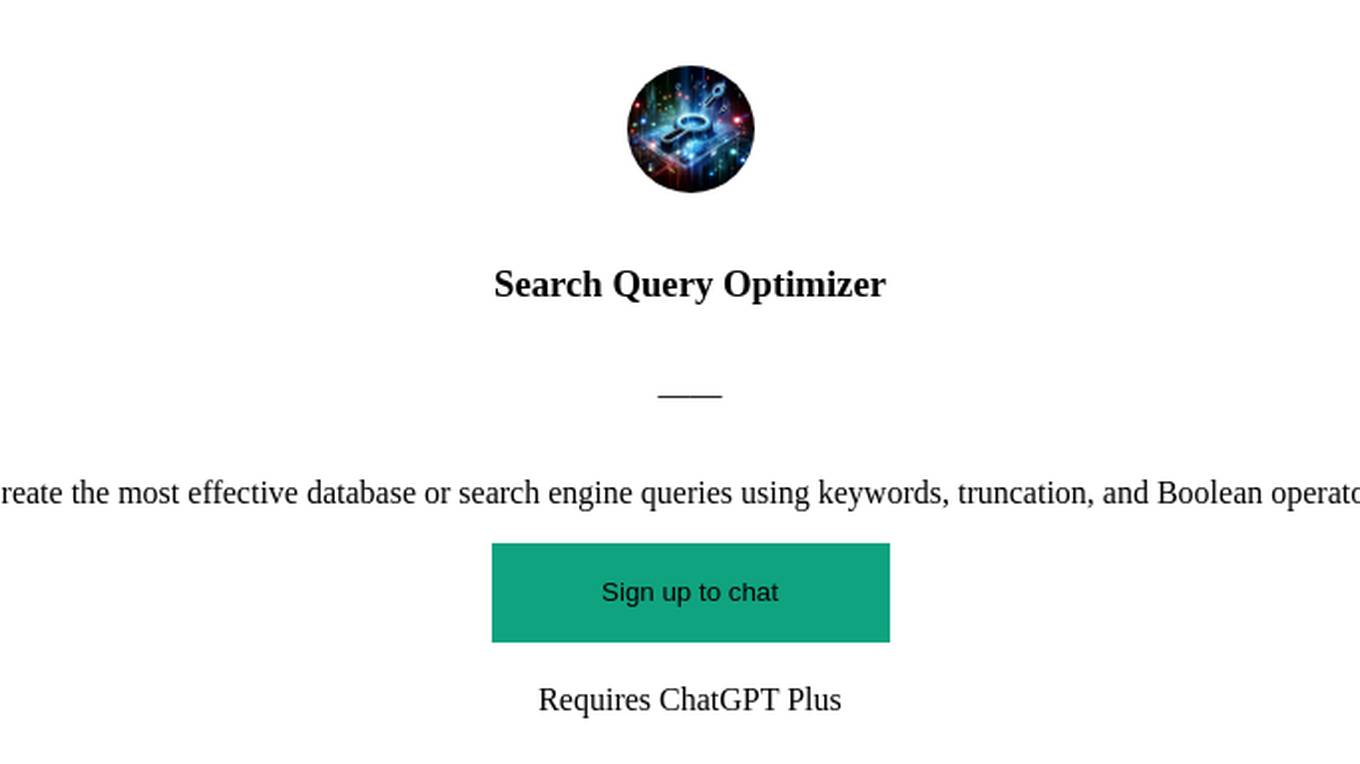
Search Query Optimizer
Create the most effective database or search engine queries using keywords, truncation, and Boolean operators!

Deen Search
Expert en Islam offrant des conseils détaillés sur la base du Saint Coran et des Hadiths
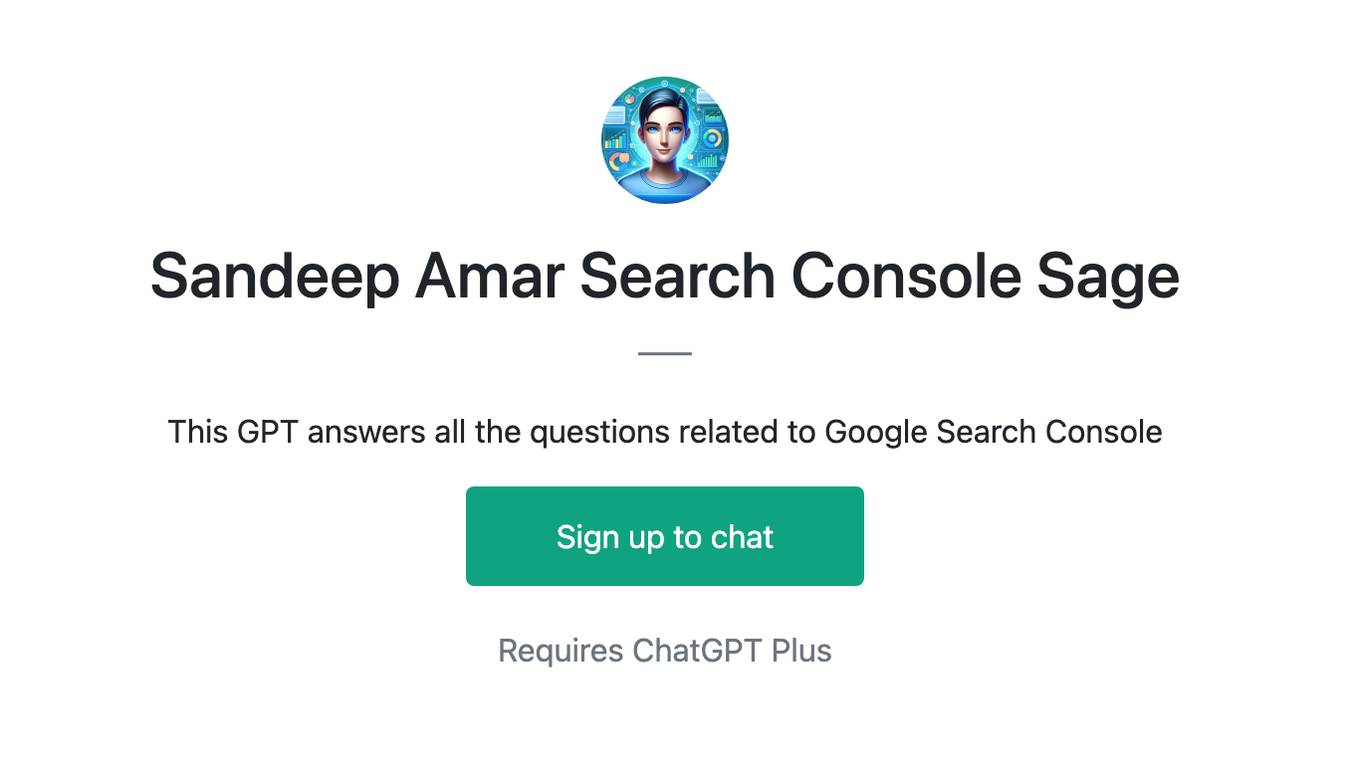
Sandeep Amar Search Console Sage
This GPT answers all the questions related to Google Search Console
